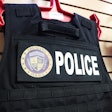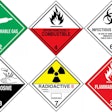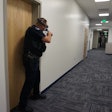Next to the kind of fiscal hemorrhaging popularized by Congress, I have a difficult time imagining a bigger waste of time and money than the drug testing of cops.
The occasional Raphael Perez notwithstanding—which happened to be more a problem of negligent hiring in the first place; the guy was known to be a less-than-ideal candidate at the time of his hiring by LAPD—I believe cops just don't take, toke, or smoke anything they're not supposed to.
It follows that I was both amazed and appalled when the Los Angeles County Sheriff's Department first announced that they were going to conduct random urine testing of its sworn personnel to detect evidence of narcotics usage.
At the time, it seemed to me that the department had more pressing concerns. Like the parade of s***-faced administrators renowned for fleeing from local PDs and rear-ending Chippies.
I also thought it odd that the same people who were routinely recognized by the court system as drug experts should suddenly be presumed by their own agency as incapable of divining that their bookman was whacked. That the law enforcement uniform might immediately render a narcotic abuser invisible to his fellow cops (also known as the Friggin' Clark Kent Pair of Sunglasses Phenomenon).
And yet, an old friend of mine proved impervious to such cloaking devices when, shortly after his promotion, he recognized a custody deputy as being under the influence of heroin. Chasing his fellow employee's ass down to the men's room, he caught up with the dude just as the guy tried to flush his hype kit.
But the department apparently thought my friend was the exception and that a majority of its personnel wouldn't recognize such symptoms, and so it stuck with the Pee Police.
Periodically—usually while relieving my bladder under the watchful eye of some pee collector—I'd ask about the success of the program.
Time and again I was told of the remarkably low percentage of positive tests results; picture a decimal mark, followed by a zero or two, then some single-digit number. This was taken as proof that even if our characters were not wholly unassailable, we were by and large drug free (and of those testing positive, most were for marijuana, a substance that may yet be voted legal and whose reputation seems exorbitant relative to the damages wrought by alcohol or tobacco).
Eventually, I expressed my concerns to someone higher up in the organization. With just a hint of condescension, he advised me that the practice was a huge public relations boon.
"Think about it," he told me. "People don't have any basis for accusing the department's personnel of abusing drugs!"
Hmmm. All I could think was, who gives a rat's ass what kind of spurious allegations some jerk makes of our employees? Didn't matter. My fellow deputies and I were expected to do two things. First, chalk it up to another one of those so-called utilitarian inconveniences for some greater good such as affirmative action. Second, piss in the cup.
That law enforcement agencies might continue this policy of obligating their employees to such embarrassments in an age when people are up in arms about the prospect of fielding inquiries into their citizenship strikes me as ironic. Cops are generously afforded an opportunity to exonerate themselves of implied charges by peeing in a cup?
When one considers the thousands of dollars that have literally been pissed away on this fiasco, one might reasonably ask what the hell our administrators have been smoking.
And if we should test them instead.

















